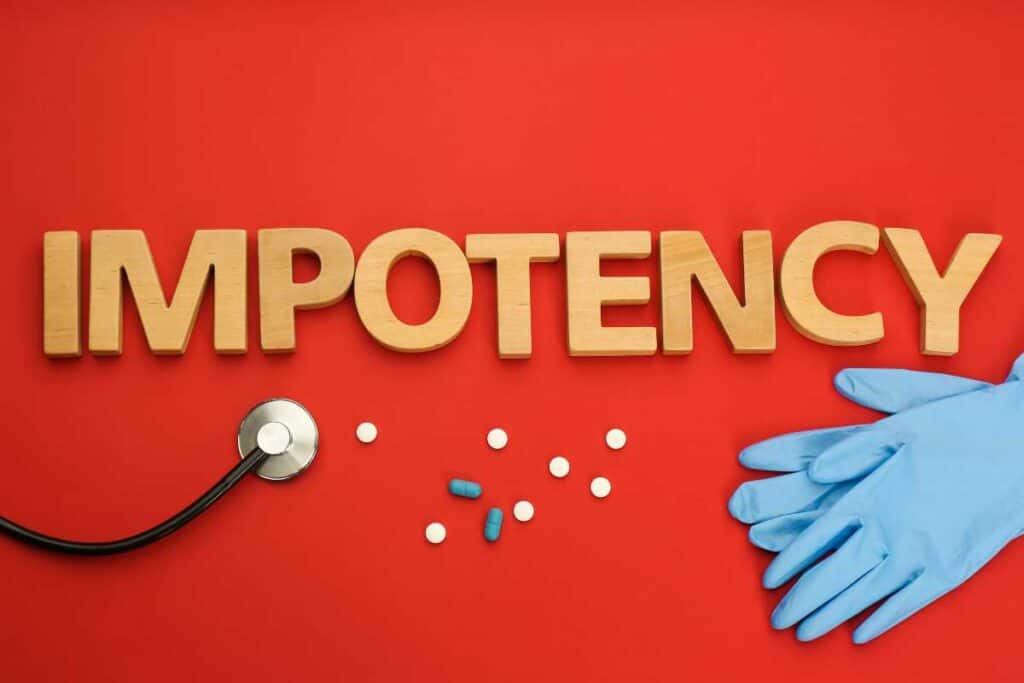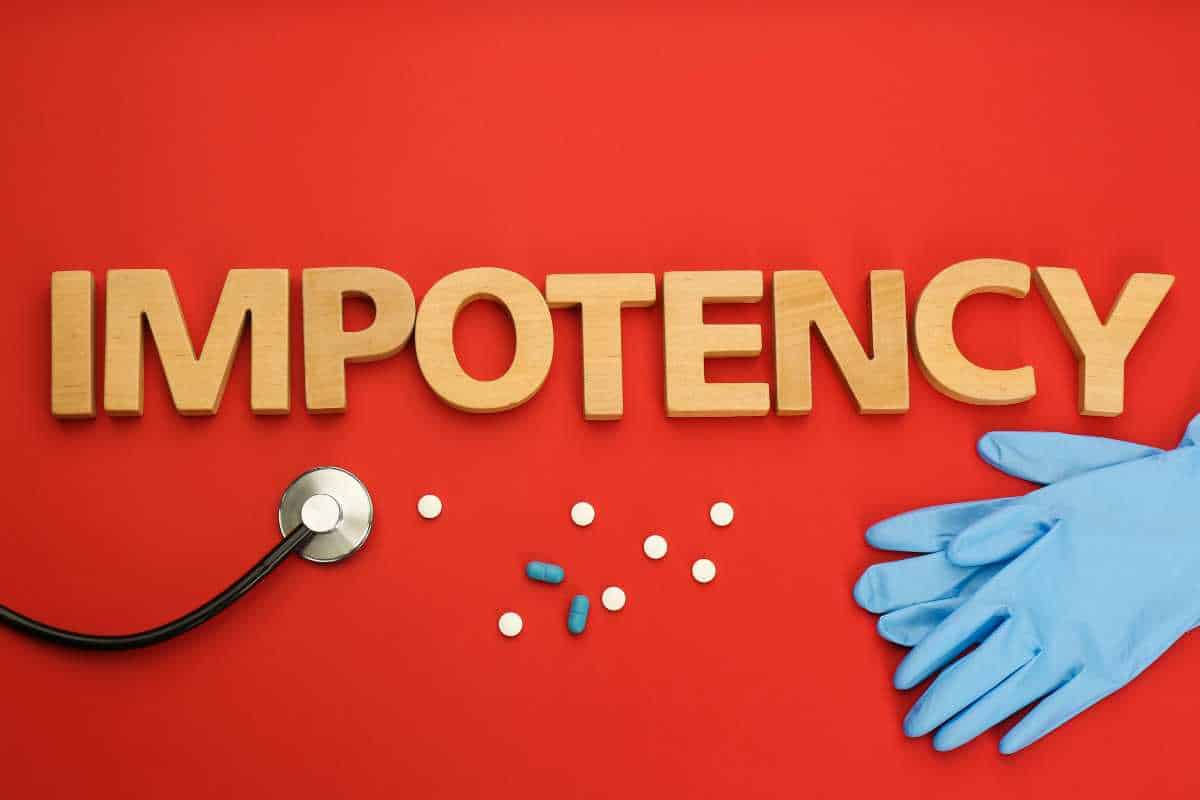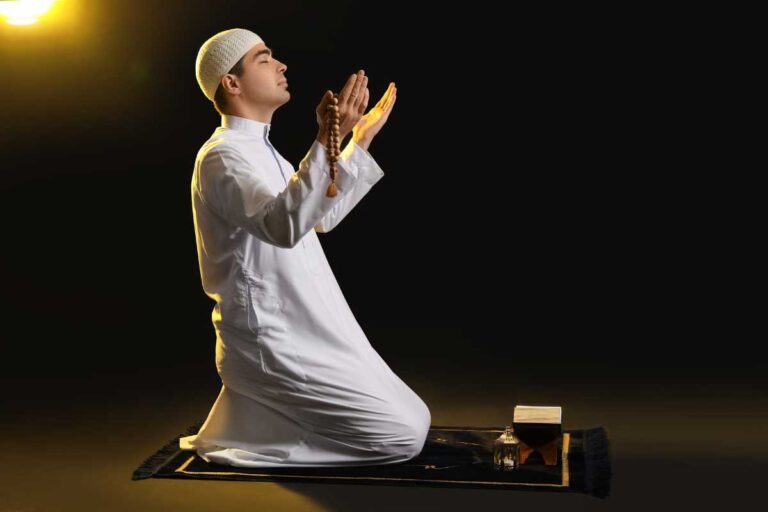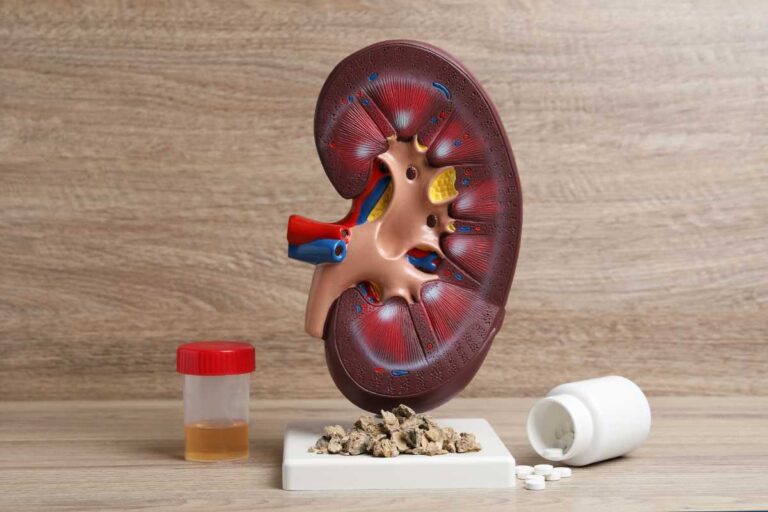Prophetic Medicine for Impotence: Muslim Prayer Movements
Prophetic Medicine for Impotence: Muslim Prayer Movements

Imagine the frustration of being unable to perform sexually, feeling disconnected from your partner and questioning your own masculinity. It’s a struggle that many men face, but what if there were alternative solutions rooted in centuries-old wisdom?
In Islamic tradition, the teachings of Islam offer a unique perspective on addressing impotence through prophetic medicine.
Prophetic medicine refers to remedies and practices derived from the teachings of the Prophet Muhammad (peace be upon him) and his companions.
These age-old remedies have been passed down through generations, offering natural approaches to various health issues, including impotence. With figures like Imam Sadiq contributing their knowledge to this field, Islamic culture provides a rich resource for those seeking alternatives to conventional treatments.
We’ll delve into specific remedies mentioned in ancient texts and discuss their potential benefits. Join us as we dive into this fascinating topic that combines spirituality, health, and intimacy in an effort to rediscover ancient wisdom for modern challenges.
| Causes of Impotence | Explanation |
|---|---|
| Physical causes | Impotence can be caused by physical factors such as diabetes, high blood pressure, obesity, and hormonal imbalances. |
| Psychological causes | Impotence can also be caused by psychological factors such as stress, anxiety, depression, and relationship problems. |
| Medications | Certain medications, such as antidepressants, blood pressure medications, and chemotherapy drugs, can cause impotence as a side effect. |
| Lifestyle factors | Unhealthy lifestyle choices, such as smoking, excessive alcohol consumption, and drug abuse, can contribute to impotence. |
| Medical conditions | Impotence can be a symptom of underlying medical conditions such as cardiovascular disease, prostate problems, and neurological disorders. |
| Injury or surgery | Trauma or surgery to the pelvic area can damage the blood vessels and nerves involved in erections, leading to impotence. |
| Aging | As men age, the risk of impotence increases due to natural changes in the body, including decreased blood flow and hormone levels. |
“Explore our latest articles on Prophetic Medicine to discover simple, natural remedies that can improve your health. Check them out now and start feeling better!“
Medicinal Plants: Traditional Treatment for Impotence
In traditional Islamic medicine, medicinal plants have long been utilized to address impotence. These herbal remedies play a significant role in overcoming this condition within the Islamic tradition. Let’s delve into the use of medicinal plants for treating impotence and explore some specific examples.
Medicinal Plants in Islamic Tradition
Medicinal plants have been an integral part of traditional Islamic medicine for centuries. The rich heritage of Islamic culture has fostered a deep understanding of the healing properties found in various plant species.
Researchers have conducted extensive studies on medicinal plants, exploring their potential benefits in treating impotence and other health conditions.
Natural Plant-Based Treatments
The use of natural, plant-based treatments is highly valued within the Islamic tradition for combating impotence. Ethnopharmacology, a branch of science that examines the traditional uses of medicinal herbs and plants, has shed light on numerous plant species that possess potential therapeutic effects against impotence.
One example is Syzygium aromaticum, commonly known as cloves. Cloves are not only used as a spice but also hold medicinal value.
They have been traditionally used to improve sexual function and increase libido. Another plant with potential benefits is Asparagus racemosus, commonly known as Shatavari or Wild Asparagus. It is believed to enhance reproductive health and boost sexual vitality.
Ethnobotanical Studies
Ethnobotanical studies play a crucial role in understanding the traditional uses of medicinal plants for impotence treatment within the Islamic tradition. These studies involve examining the relationship between people and plants, highlighting how specific plant parts are used to address health issues.
For instance, olive oil holds significance in both culinary and medicinal practices within Islam. Olive oil massages are believed to improve blood circulation and promote overall well-being, including sexual health. Ruta graveolens (rue) is another plant that has been historically associated with enhancing male fertility and addressing impotence.
Harnessing the Power of Medicinal Plants
The wide array of medicinal plants used in traditional Islamic medicine provides a holistic approach to treating impotence.
These plants offer natural alternatives to conventional treatments, often with fewer side effects. However, it is essential to consult with healthcare professionals or experienced practitioners before incorporating any herbal remedies into your treatment plan.
To harness the power of medicinal plants effectively, it is crucial to understand their appropriate usage and dosage.
Different plant parts, such as leaves, roots, or seeds, may be utilized for specific purposes. Ethnobotanical studies continue to shed light on the potential benefits of various plant species and their applications in treating impotence.
Muslim Prayer Movements as Alternative Therapy
Muslim prayer movements can be considered an alternative therapy for impotence. Within the Islamic faith, specific prayer movements are believed to aid in overcoming impotence. Incorporating prayer into the treatment of impotence is a practice deeply rooted in Islamic tradition.
Muslim Prayer Movements: A Natural Remedy
In Islam, prayer is not just a religious obligation but also a means of seeking healing and guidance from Allah. It is believed that certain physical movements performed during prayer can have therapeutic effects on the body and mind. These movements involve standing, bowing, prostrating, and sitting in a rhythmic manner.
The Power of Physical Movement
The physical movements performed during Muslim prayers help improve blood circulation throughout the body. This increased blood flow can have positive effects on various bodily functions, including sexual health.
By incorporating these specific movements into their daily prayers, individuals with impotence may experience improved erectile function over time.
Mind-Body Connection
Prayer is not solely focused on physical movement; it also involves deep spiritual connection and mindfulness. Engaging in regular prayer helps reduce stress levels and promotes mental well-being. Stress is known to be one of the leading causes of impotence, so by reducing stress through prayer, individuals may see improvements in their overall sexual health.
Faith as a Source of Hope
For many Muslims facing impotence or other health challenges, turning to their faith provides solace and hope. Believing in the power of prayer gives them confidence that they are not alone in their struggles and that there is divine intervention at work. This sense of hope can have a positive impact on mental health and overall well-being.
Integrating Traditional Medicine with Prayer Movements
It’s important to note that while Muslim prayer movements can be seen as an alternative therapy for impotence, they should not replace medical advice or treatment prescribed by healthcare professionals. Instead, they can be integrated into a holistic approach to treatment, complementing traditional medicine.
Exploring Efforts to Overcome Impotence in Islamic Tradition
Impotence, also known as sexual dysfunction, is a challenging issue that affects many individuals. In the realm of Islamic tradition, various efforts have been made to address and overcome impotence. These efforts emphasize the importance of exploring different methods and approaches while staying true to the principles of Islam.
Comprehensive Approach within Islamic Tradition
Islamic tradition takes a comprehensive approach. This approach encompasses physical, psychological, and spiritual aspects in order to provide holistic solutions for those experiencing impotence.
Physical Interventions
Islamic tradition recognizes the significance of maintaining good physical health as a means to combat impotency. It encourages adherents to follow a healthy lifestyle that includes regular exercise, balanced nutrition, and adequate rest.
Engaging in activities such as walking, swimming, or practicing martial arts not only promotes physical well-being but can also have positive effects on sexual health.
In addition to general physical wellness practices, specific remedies from prophetic medicine are often recommended for addressing impotency.
Prophetic medicine refers to traditional remedies derived from the teachings and practices of Prophet Muhammad (peace be upon him). These remedies include herbal preparations and natural ingredients known for their potential benefits in enhancing sexual function.
Psychological Support
Recognizing that psychological factors can contribute significantly to impotency, Islamic tradition emphasizes the importance of mental well-being.
Seeking support from counselors or therapists who understand both modern psychology and Islamic teachings can be helpful for individuals struggling with impotence.
Engaging in mindfulness practices such as meditation or recitation of Quranic verses can assist in reducing stress levels and promoting emotional stability. Such practices help individuals develop resilience and cope with anxiety related to sexual performance.
Spiritual Connection
Islamic tradition places great emphasis on spirituality as an essential aspect of overall well-being. Strengthening one’s spiritual connection through acts of worship like prayer, fasting, and reading the Quran can have a positive impact on mental and emotional health.
It can also provide individuals with a sense of inner peace and contentment, which may indirectly contribute to addressing impotency.
Research and Studies
To further understand impotency within an Islamic context, researchers have conducted studies and systematic reviews exploring different approaches. These efforts aim to bridge the gap between modern medical knowledge and Islamic teachings, providing evidence-based guidance for individuals seeking solutions to impotence.
Research has shown that combining traditional remedies from prophetic medicine with modern medical interventions can lead to positive outcomes for individuals experiencing impotency. This integrative approach ensures that individuals receive comprehensive care while honoring their religious beliefs.
Efficacy of Medicinal Plants in Treating Impotence
Traditional Islamic Medicine and Medicinal Plants
According to traditional Islamic medicine, medicinal plants have long been recognized for their efficacy in treating impotence.
Prophetic medicine, which is based on the teachings of the Prophet Muhammad (peace be upon him), emphasizes the use of natural remedies derived from plants and herbs. These remedies are believed to have aphrodisiac effects and can help overcome impotency.
Recognizing Herbal Remedies for Impotence
The effectiveness of herbal remedies for impotency has gained recognition within the context of prophetic medicine. The wisdom passed down through generations highlights specific plants that possess properties to enhance sexual health and combat impotence. One such example is onion extract, which has been traditionally used as a remedy for various ailments, including impotency.
Scientific Support for Medicinal Plants
Scientific studies have also provided support for the use of medicinal plants in treating impotence. Research has shown that certain plant extracts, such as aqueous extracts derived from specific herbs, exhibit potential therapeutic effects on erectile dysfunction.
These findings further validate the traditional knowledge regarding the efficacy of medicinal plants in addressing impotency.
Aphrodisiac Effects of Medicinal Plants
Many medicinal plants are known to have aphrodisiac effects due to their ability to stimulate sexual desire and improve erectile function. For instance, Tongkat Ali (Eurycoma longifolia) is a popular herb used in traditional medicine that is believed to enhance male sexual performance by increasing testosterone levels and improving blood flow to the genital area.
Onion Extract as a Remedy
Onion extract, specifically its bulb or juice, has been traditionally considered an effective remedy for impotency. It is believed to increase libido and improve overall sexual health. While scientific research on onion extract’s direct impact on erectile dysfunction is limited, it does contain compounds that may contribute to its aphrodisiac effects.
Aqueous Extracts for Impotence
Aqueous extracts derived from certain medicinal plants have shown promise in the treatment of impotency. These extracts are obtained by soaking or boiling plant materials in water, which helps extract their beneficial compounds.
The resulting liquid can then be consumed as a natural remedy for impotence. However, it is essential to consult with a healthcare professional before using any herbal remedies to ensure safety and proper dosage.
Integrating Muslim Prayer Movements with Traditional Medicine
Combining traditional medicine with Muslim prayer movements can offer a comprehensive approach to treating impotency. By integrating spiritual practices and conventional medical interventions, individuals suffering from erectile dysfunction can find a holistic solution within an Islamic framework.
Islamic traditions emphasize the integration of spirituality and healthcare when addressing health issues such as impotence.
This integration recognizes the interconnectedness of the mind, body, and spirit in achieving overall well-being. By incorporating prayer movements into treatment plans, individuals can tap into the power of faith while benefiting from the advancements of modern medicine.
Here are some key points to consider when exploring the integration of Muslim prayer movements with traditional medicine:
Enhanced Treatment Outcomes
- Integrating prayer movements with traditional medicine may enhance treatment outcomes for impotency.
- The combination of spiritual practices and conventional medical approaches creates a synergistic effect that addresses both physical and emotional aspects of erectile dysfunction.
- Prayer movements can provide individuals with a sense of peace, comfort, and hope during their healing journey.
Holistic Approach
- Integrating spiritual practices into treatment plans acknowledges the importance of addressing the whole person—physically, mentally, emotionally, and spiritually.
- Traditional healers who incorporate ethnomedicine or ethnobotanical survey methods understand the significance of cultural beliefs and practices in healing processes.
- By considering dietary habits, food choices, and lifestyle factors within an Islamic framework, practitioners can develop personalized treatment plans that align with patients’ religious values.
Scientific Evidence
- Research studies have explored the connection between spirituality and health outcomes.
- Medical narratives often highlight the positive impact of prayer on overall well-being.
- Ethnobiology research has shown how traditional remedies passed down through generations can complement modern medical interventions.
Global Health Issues
- Impotence affects millions worldwide regardless of religious background.
- The integration of Muslim prayer movements with traditional medicine provides an inclusive approach that caters to diverse populations.
- By recognizing the cultural and religious diversity within healthcare systems, practitioners can ensure that treatment plans are sensitive to patients’ beliefs and values.
Islamic Tradition’s Approach to Overcoming Impotence
Islamic tradition takes a comprehensive approach to overcome impotence, incorporating spiritual and natural remedies. The holistic approach of Islamic tradition addresses both the physical and psychological aspects of impotency.
Spiritual Healing for Impotence
Islamic teachings provide guidance on overcoming impotency through various means. One aspect is seeking spiritual healing by turning to Allah (God) for assistance and supplication. Muslims believe that prayer has the power to heal and restore balance in all aspects of life, including matters related to sexual health.
Muslims are encouraged to perform their religious obligations, such as offering prayers regularly, reciting specific verses from the Quran, and engaging in acts of worship. These practices not only strengthen one’s faith but also serve as a source of comfort and solace during difficult times, including when dealing with impotency.
Natural Remedies for Impotence
In addition to spiritual healing, Islamic tradition also emphasizes the use of natural remedies for treating impotence. Prophetic medicine, derived from the teachings and practices of Prophet Muhammad (peace be upon him), offers valuable insights into natural remedies that can help improve sexual health.
One such remedy is black seed oil (Nigella sativa), which has been mentioned in Islamic literature as having numerous health benefits, including its potential role in enhancing male fertility and addressing issues related to impotency.
Honey is another natural ingredient that is highly regarded in Islamic tradition for its therapeutic properties. It is believed to have positive effects on sexual health when consumed regularly.
Addressing Physical and Psychological Factors
Impotency can arise due to a combination of physical and psychological factors. Islamic tradition recognizes this complexity and provides guidance on addressing both aspects.
From a physical perspective, maintaining good overall health through proper nutrition, exercise, and hygiene is emphasized. Leading a balanced lifestyle that includes regular physical activity can contribute positively towards improving sexual function.
On the psychological front, Islamic teachings emphasize the importance of maintaining a healthy mindset and avoiding stress and anxiety. Engaging in activities that promote emotional well-being, such as spending time with loved ones, pursuing hobbies, and seeking professional help when needed, are encouraged.
Harnessing the Power of Prophetic Medicine for Impotence
We delved into the traditional use of medicinal plants as a treatment option and discovered the alternative therapy provided by Muslim prayer movements.
We also examined efforts within Islamic tradition to overcome impotence and discussed the efficacy of medicinal plants in addressing this issue. Furthermore, we explored how integrating Muslim prayer movements with traditional medicine can offer a holistic approach to tackling impotence.
Now that you have gained insight into the power of prophetic medicine for impotence, it’s time to take action. Consider incorporating these natural remedies and practices into your life to potentially improve your condition.
Consult with a knowledgeable healthcare professional who can guide you on suitable medicinal plants and help you develop a personalized plan that integrates Muslim prayer movements alongside traditional treatments.
Remember, embracing proactive steps towards your well-being is essential, and exploring the rich heritage of prophetic medicine may hold great promise for overcoming impotence.
FAQs
Can prophetic medicine completely cure impotence?
While prophetic medicine offers valuable insights and potential solutions for impotence, it is important to note that individual results may vary. The effectiveness of these remedies depends on various factors such as the underlying cause of impotence, overall health conditions, lifestyle choices, and consistency in following recommended treatments.
Are there any side effects associated with using medicinal plants for impotence?
When used responsibly and under proper guidance from healthcare professionals or herbalists experienced in prophetic medicine, medicinal plants generally have minimal side effects. However, it is crucial to be aware of potential allergies or interactions with other medications you may be taking. Always consult with an expert before incorporating any new herbal remedies into your routine.
How long does it take to see results from integrating Muslim prayer movements?
The timeline for experiencing results from integrating Muslim prayer movements as an alternative therapy for impotence can vary from person to person. Consistency and regular practice are key factors in achieving potential benefits. It is essential to approach prayer movements with patience, dedication, and faith, allowing time for the body and mind to respond positively.
Can I combine prophetic medicine with conventional medical treatments?
Yes, it is possible to combine prophetic medicine with conventional medical treatments for impotence. However, it is crucial to consult with healthcare professionals who are knowledgeable about both traditional and modern approaches. They can guide you on integrating these two systems of healing in a safe and effective manner tailored to your specific needs.
Are there any dietary recommendations within prophetic medicine that can help with impotence?
Prophetic medicine emphasizes the importance of a balanced and wholesome diet for overall well-being. While there are no specific dietary recommendations solely focused on impotence, following a healthy eating pattern that includes fruits, vegetables, whole grains, lean proteins, and limited processed foods can contribute to better sexual health. Staying hydrated and avoiding excessive consumption of stimulants like caffeine or alcohol may also be beneficial.
Can prophetic medicine be used by individuals of different faiths?
Absolutely! Prophetic medicine encompasses a wealth of knowledge that transcends religious boundaries. The natural remedies and practices associated with this ancient tradition can be explored by individuals from various backgrounds who are seeking alternative solutions for their health concerns. Remember to approach prophetic medicine with an open mind and respect for its cultural origins.
Where can I find reliable resources on prophetic medicine?
To delve deeper into the realm of prophetic medicine, it is important to consult reputable sources such as books written by scholars specializing in Islamic traditional medicine or qualified healthcare professionals experienced in this field. Online platforms hosted by recognized organizations or institutions dedicated to promoting accurate information about prophetic medicine can also provide valuable insights. Always prioritize reliable sources when seeking knowledge about this fascinating discipline.







